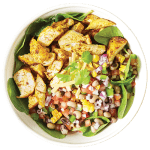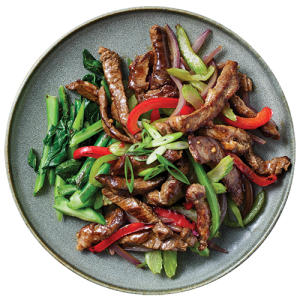Plant-based Whole Foods

Today the choice of nutritious plant-based food options are endless, with no need to compromise on taste and variety. From easy menu plans and conveniently prepared meals to inspiring recipes and ingredients, the sky is the limit in satisfying your palette while nourishing your body. Plant-based whole foods are foods that come from plants and plant-based sources and include fruit, vegetables, nuts, seeds whole grains, pulses, and legumes. This is in contrast to animal foods and animal by products derived from animals.
Top 6 Reasons To Start A Plant-based Diet Today

There are many reasons you may choose to up your intake of plant food in your diet. From a personal commitment to healthy eating, to the many known health benefits, to being concerned about our environment. Below are some of the reasons why more and more people are opting to replace animal foods with plant-based whole foods in their eating plans.
1. Boost immunity
Plants have unique nutrients naturally – vitamins, minerals, antioxidants, phytochemicals — that animal foods don’t have. These naturally occurring nutrients keep your cells healthy, your body in balance, and boosts your immunity. So a predominantly plant-based healthy diet helps your immune system work better to fight off germs. Antioxidants and phytochemicals found in plants also help to reduce inflammation by neutralising toxins.
2. Weight loss and maintenance
Spoon for spoon, a plant-based diet is lower in calories than a diet laden with animal products and processed foods. Healthy plant-based foods are also high in dietary fibre, which keeps you feeling fuller for longer. Plant foods include vegetables, fruits, whole grains and beans. By avoiding meat, cheese, eggs and reducing oils, you reduce fat intake, and calorie dense choices i.e. gram for gram, fat has more calories than carbohydrates and plant foods.
3. Reduce the risk of heart disease
Plant foods like whole grains, nuts, legumes, fruit and vegetables, and healthy oils (including olive oil, avocados and olives) are rich in fibre, vitamins and minerals. By including more of these plant foods in your diet you can lower blood pressure and bad cholesterol, and lower the risk of chronic disease like diabetes, as well as maintain a healthy weight. All these factors combine to a lower risk of heart disease.
Even if you don’t cut out animal products completely, countries that follow the Mediterranean diet (like Italy, Spain, Greece and other countries located on the Mediterranean Sea) have shown to have a lower risk of heart disease. This healthy eating plan is a way of life and involves building a healthy diet primarily of fruits, vegetables, beans and whole grains, eating limited animal protein but including fish rich in omega-3 fatty acids, using olive oil instead of butter in food preparation, and enjoying fresh fruit for dessert. Interestingly, the Mediterranean Diet is not a low-fat diet; it includes a moderate amount of fats, but heart-healthy fats.
4. Prevent and help treat type 2 diabetes
By helping improve insulin sensitivity and reduce insulin resistance, a plant-based diet can help people with prediabetes and type 2 diabetes. Increasing plant-based whole-foods in your diet and reducing the intake of refined foods and animal products can prevent and treat type 2 diabetes. Additional benefits include reducing risk factors like obesity, hypertension, hyper-lipidaemia and inflammation. A plant-based diet may also help reduce the risk of cancer – especially by limiting the intake of red meats, salt, alcohol and high-calorie energy-dense foods.
5. Increase energy and reduce fatigue
Diet and nutrition plays a core role in energy levels because food choices impact on the way your body functions. Plant-based foods requires less energy to digest compared to animal foods, which require more energy. Animal protein is hard for our body to break down and is especially hard to digest. Because animal products includes more digestive complexity and energy, by substituting plant foods over animal foods you can feel more energetic.
Energising plant-based foods include complex carbohydrates like sweet potatoes, which are also high in fibre, and play an important role in energy metabolism. Plant-based diets also help feed rest and relaxation. Foods like bananas, sweet potatoes, walnuts, peanut butter and avocados are high in Vitamin B6, which contributes to a better night’s sleep. Because many plant foods are low GI, a plant-based diet helps to maintain blood sugar levels with fewer spikes through the day, making your energy more consistent through the day.
6. Sustainability
Production of animal protein requires substantially more fossil fuel than production of plant protein for human consumption. This means that plant-based diets are more environmentally friendly and sustainable than animal food diets. In comparing plant food production to meat and dairy production, plant diets demand less of the environment because plant food production uses less natural resources – from water to agricultural land. Besides the known health benefits of plant food choices over animal products, the move towards a more plant-based diet for many people is doubly motivated by plant foods being more sustainable, more respectful, and more protective of our environment and ecology.
Benefits Of A Plant-based Diet
The benefits of a plant-based diet are plentiful. From daily health benefits to long term disease prevention to being kinder to the planet.
HEALTH BENEFITS INCLUDE:
- Lower blood pressure, which can reduce the risk of heart disease, stroke and type 2 diabetes.
- Reducing saturated fat intake (red meat) and choosing healthy oils (like olive oil) and unrefined whole plant food, promotes good heart health.
- Moving to a more plant-based diet can reduce ‘bad cholesterol’. High cholesterol can lead to stroke, heart disease and type 2 diabetes.
- Keeps your brain strong. Fruits and vegetables are rich in polyphenols, which may help slow the progression of Alzheimer’s as well as may help reverse cognitive decline.
ENVIRONMENTAL BENEFITS INCLUDE:
- Food production is responsible for 30% of all greenhouse gas emissions with animal food production making up 75% of this total. By increasing plant food consumption, we can help reduce greenhouse gas emissions.
- Agricultural water consumption and agricultural land use can be reduced by cutting down on animal product consumption.
- Global hunger can be alleviated to some extent with the more efficient allocation of food resources. Redirecting plant foods like soy beans, maize, barley and grains to starving nations rather than feeding animals for animal food production can further help benefit the environment and humanity.
A Plant-based Diet Beginners’ Guide
If you’re at the start of your plant-based journey, the information and options may seem endless. While for many, a plant-based diet means being a 100% vegan, for others following a plant-based diet may simply mean substituting a few animal food meals in the week for a few plant-based dishes. Whatever your preference, and especially if you’re only beginning, it doesn’t need to be ‘an all or nothing’ (there’s no need to go cold turkey on your cold turkey!). A more gradual approach may work better as a longer-term eating lifestyle.
Here are some ways people approach upping whole plant foods in their diet:
- Flexitarian: This is choosing to include plant-based whole foods predominantly in your diet but with flexibility in eating some animal foods occasionally.
- Pescetarian: For some, the road to plant power progression is to simply eliminate meat and poultry from their diet. Pescetarians eat animal products like fish and seafood, eggs, milk and cheese plus all plant foods.
- Vegetarian: A vegetarian diet excludes all animal products and by products of slaughter. This means that a vegetarian diet may include eggs, dairy products and honey as well as plant foods.
- Vegan: A vegan diet is a total commitment to a plant-based way of living and excludes all animal products and by products. A vegan doesn’t eat dairy products, honey nor eggs.
The Difference Between A Whole-food Plant-based Diet And A Vegan Diet
Because a plant-based diet can be set at a level that works for you as an individual, there is a difference between a whole-food plant-based diet (WFPB diet) and a vegan diet. A vegan diet excludes all animal and animal-derived products whereas a plant-based diet is an approach that may vary from person to person. In general, a WFPB diet includes whole, minimally processed, natural foods, and excludes refined foods like added sugar, white flour and processed oils.
Because a plant-based diet can be set at a level that works for you as an individual, there is a difference between a whole-food plant-based diet (WFPB diet) and a vegan diet. A vegan diet excludes all animal and animal-derived products whereas a plant-based diet is an approach that may vary from person to person. In general, a WFPB diet includes whole, minimally processed, natural foods, and excludes refined foods like added sugar, white flour and processed oils.
Making Sure You Get Enough Protein
Protein is vital for your body’s functioning for many reasons, from maintaining muscle mass, energy and blood sugar levels, to hormonal regulation and cell growth, repair and maintenance. Amino acids are the building blocks of protein and key for growth. The 9 essential amino acids our body needs are found in the food we eat. So the very important question when thinking up vegan recipes is to make sure you get enough protein through a varied and balanced diet. And while protein is essential in our diets, we don’t need to consume huge quantities of protein daily. Plant-based proteins are essential and delicious ingredients and easy to add to meals, smoothies or snack on. Some plant protein choices include:
- Seeds, nuts and nut butters like flaxseed, hemp seed, chia seeds, pumpkin seeds, cashews and pistachios.
- Tofu, made from soybeans, contains the 9 essential amino acids and is a great source of plant protein.
- Tempeh is a soy based ingredient, contains probiotics and can help reduce cholesterol, and is also high in calcium, iron, and manganese.
- Beans and legumes are versatile, high in B vitamins and are also a great source of fibre.
- Chickpeas and lentils are another high fibre protein, rich in iron, potassium and manganese.
- Nutritional yeast is an important pantry staple of many plant-based cooks. Nutritional yeast is not only high in protein (it’s a complete protein containing 9 essential amino acids) but is also high in essential Vitamin B12 and fibre.
Whole Food Based Diet Plans For Weight Loss
The core underpin of a whole food plant-based diet is balanced nutrition by choosing to eat unprocessed foods. Because unprocessed plant foods are packed with fibre, they keep you feeling full for longer. This makes whole-food diet plans ideal for weight loss, and also work well to maintain an ideal weight. And with so much delicious choice and nutritious variety, there’s no reason to not look forward to plant-based meals while also enjoying the benefits for weight loss. Some good choices that are low GI and high fibre, and keep you feeling full for longer include:
- Whole grains like whole wheat, multigrain, rye and sour dough bread and high bran vegan breakfast cereals.
- Fruit and veggies including apples, strawberries, kiwi, plum, tomatoes, carrots, broccoli and cauliflower.
- Starchy vegetables with orange flesh like sweet potatoes and winter squash.
- Rice like basmati, long grain and brown rice.
- Grains including quinoa, barley and buckwheat.
Whatever your choice, a balanced diet that also includes protein and healthy fats is the best way to achieve weight loss and maintain an ideal weight. And even though carbs typically flash red when speaking about weight loss, healthy complex carbohydrates will regulate blood sugar and keep you feeling full for longer!














